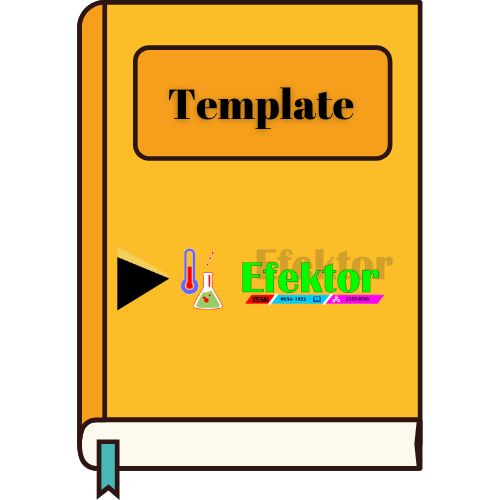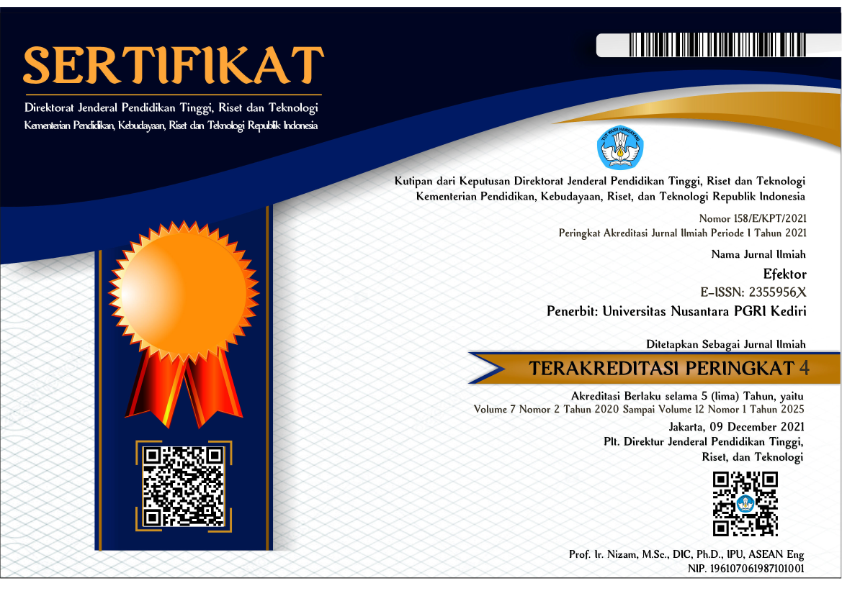Analisis Kebutuhan Pengembangan Bahan Ajar Elektronik Mata Kuliah Desain dan Strategi Pembelajaran di IKIP Budi Utomo
DOI:
https://doi.org/10.29407/e.v7i2.14756Keywords:
needs analysis, electronic teaching materials, learning design and strategies, analisis kebutuhan, bahan ajar elektronik, desain dan strategi pembelajaranAbstract
Teaching materials are one of the factors that can affect the smoothness of the learning process and student learning outcomes. Design and Learning Strategies courses are compulsory subjects taught at the S1 level of the Health and Recreation Physical Education Study Program at IKIP Budi Utomo. Teaching materials for Design and Learning Strategies courses that are currently used are limited to printed teaching materials which contain material descriptions. The purpose of this study was to determine the needs of students in learning Design and Learning Strategy Subjects, especially in providing learning resources at IKIP Budi Utomo. This research method is descriptive quantitative. The research subjects were students of the 2018 IKIP Budi Utomo Recreation and Physical Education Study Program. The sample was randomly selected. They are collecting data through interviews with Subject Management Lecturers and student questionnaires. The results of the interviews show that the teaching materials used so far are still limited to printed teaching materials which contain descriptions of design materials and learning strategies in general, there are no specific examples of Physical Education learning designs and also important concepts of Physical Education learning. The results of the student need questionnaire analysis show that: 1) the teaching materials needed by students are in the form of electronic teaching materials (e-books), 2) the material in the teaching materials is material related to the specifications of the field of science, namely physical education learning.
References
Ardiansyah, R., Corebima, A. D., & Rohman, F. (2016). Analisis Kebutuhan Pengembangan Bahan Ajar Perubahan Materi Genetik pada Matakuliah Genetika di Universitas Negeri Malang. In Seminar Nasional Pendidikan dan Saintek 2016 (Vol. 2016, p. 1).
Dwiyogo, W. D. (2013). Media Pembelajaran. Malang: universitas negeri malang.
Irawati, H., & Saifuddin, M. F. (2018). Analisis Kebutuhan Pengembangan Bahan Ajar Mata Kuliah Pengantar Profesi Guru Biologi Di Pendidikan Biologi Universitas Ahmad Dahlan Yogyakarta. Bio - Pedagogi: Jurnal Pembelajaran Biologi, 7(96–99), 96–99. Retrieved from https://jurnal.uns.ac.id/pdg/article/view/27636.
Jazuli, M., Azizah, L. F., & Meita, N. M. (2018). Pengembangan Bahan Ajar Elektronik Berbasis Android Sebagai Media Interaktif. LENSA (Lentera Sains): Jurnal Pendidikan IPA, 7(2), 47–65. https://doi.org/10.24929/lensa.v7i2.22.
Muga, W., Suryono, B., & Januarisca, E. L. (2017). PENGEMBANGAN BAHAN AJAR ELEKTRONIK BERBASIS MODEL PROBLEM BASED LEARNING DENGAN MENGGUNAKAN MODEL DICK AND CAREY. Journal of Education Technology, 1(4), 260–264.
Nuha, U., Amin, M., & Lestari, U. (2016). Pengembangan Buku Ajar Berbasis Berbasis Penelitian Evolusi dan Filogenetik Molekuler untuk Matakuliah Evolusi di Universitas Jember. Jurnal Pendidikan: Teori, Penelitian, Dan Pengembangan, 1(9), 1791–1796.
Prastowo, A. (2012). Panduan Kreatif Membuat Bahan Ajar Inovatif. Yogyakarta: Diva Press.
Satriawan, M. (2016). Pengembangan Bahan Ajar Fisika Berbasis Kontekstual dengan Mengintegrasikan Kearifan Lokal untuk, 6(1).
Surahman, F., & Yeni, H. O. (2019). Pengembangan Buku Ajar Mata Kuliah Renang Bagi Mahasiswa Pendidikan Jasmani Kesehatan dan Rekreasi. Journal Sport Area, 4(1), 218–229. https://doi.org/10.25299/sportarea.2019.vol4(1).2413
Downloads
Published
How to Cite
Issue
Section
License
Authors retain copyright and grant the journal right of first publication with the work simultaneously licensed under a Creative Commons Attribution-ShareAlike 4.0 International License that allows others to share the work with an acknowledgment of the work's authorship and initial publication in this journal.














